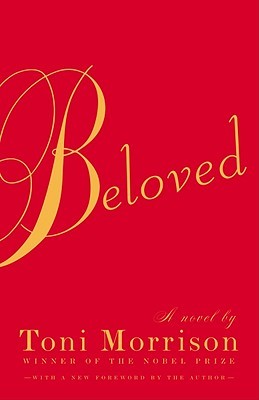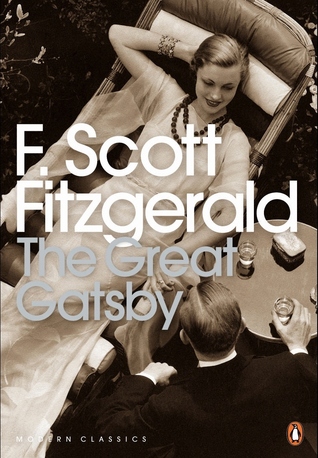#TheWoolgrowersCompanion #JoyRhoades #Q&A #Giveaway

What's it about?
Kate Dowd’s mother raised her to be a lady but she must put away her white gloves and pearls to help save her family’s sheep farm in New South Wales.
It is 1945, the war drags bitterly on and it feels like the rains will never come again. All the local, able-bodied young men, including the husband Kate barely knows, have enlisted and Kate’s father is struggling with his debts and his wounds from the Great War. He borrows recklessly from the bank and enlists two Italian prisoners of war to live and work on the station.
With their own scars and their defiance, the POWs Luca and Vittorio offer an apparent threat to Kate and Daisy, the family’s young Aboriginal maid. But danger comes from surprising corners and Kate finds herself more drawn to Luca than afraid of him.
Scorned bank managers, snobbish neighbours and distant husbands expect Kate to fail and give up her home but over the course of a dry, desperate year she finds within herself reserves of strength and rebellion that she could never have expected.
The Woolgrower’s Companion is the gripping story of one woman’s fight to save her home and a passionate tribute to Australia’s landscape and its people.
The Woolgrower's Companion is published on 8th June 2017 by Penguin.
What gave you the idea for the story?
Family stories were the inspiration for The Woolgrower's Companion. I grew up in the bush in Australia and I often visited my grandmother's sheep farm. She was a great storyteller and from her, I heard about life on the land, especially during WWII. While this is not her story, I did set out to capture that era and her resilience, in The Woolgrower's Companion.
What one thing would you like readers to take away from your novel?
I hope readers find The Woolgrower's Companion a cracking yarn! And an affirmation of the power of hope, and of resilience.
Which three words would you use to describe Kate?
Kate's a learner, prepared to be shown a better way of doing things. She's also stoic in her own way. And she's funny, too, on for a laugh.
Can you tell me a little bit about the research that you had to do for this novel? Was it very difficult / complicated / problematic? How long did it take to research the novel?
It was very important to me that The Woolgrower's Companion might have happened. That meant research. And I was fortunate to work with some remarkable experts: historians, sheep growers, and veterinary, medical and other advisers who helped me. As the story takes place on Kamilaroi land, I needed cultural guidance. I spoke to a number of people who were very generous with their time. Poet and activist Kerry Reed-Gilbert, a woman of the Wiradjuri Nation, was central to my understanding of the Aboriginal aspects to a story, and guided me to ensure that The Woolgrower's Companion is respectful of cultural practices. Katherine Faulkner, a woman of the Anaiwan Nation, was also an essential adviser.
The dialogue is very authentic and realistic. How did you find writing phonetically and with so much dialect?
I knew what the characters sounded like in my head -- this is the language of the bush, the language of my childhood. The real challenge was to get it down. I tried to keep in mind great writers of dialogue like Cormac McCarthy and one of my heroes, Tim Winton. And as a double-check, I had some advisers look over it for me too.
Because of the historical setting of the novel there is quite a lot of less politically correct terminology used. Obviously this is absolutely essential in writing such an authentic and realistic novel but did you have any issues / problems / concerns with this at all?
You've identified an issue I struggled a great deal with, as a writer: should I present Kate with a kind of contemporary sensibility, or do I show her as she would have been? I felt that a contemporary Kate wouldn't have been authentic. But that means that in The Woolgrower's Companion, some characters use hurtful terms that we would never use today. I hope I've captured the era so that, even in the text itself, readers understand that terms like 'Abos' or 'Aborigines' are offensive, and that 'the Aboriginal people' is respectful. And I address this issue in the Acknowledgements too. It's important.
There are several ‘big’ issues explored in the novel. Was that intentional? Was there one that you felt more passionately about?
I wanted two things with The Woolgrower's Companion: to write a cracking yarn and to capture this bush community at this time: the end of WWII. Shell shock, sexism, racism, and the Stolen Generations (the removal and institutionalization of Aboriginal children from their parents), are prominent in The Woolgrower's Companion, because those things were central to that time and place, and, arguably, remain critical as well. They all concern me; I think today, we just see them better.
The beginning of each chapter begins with a quote from The Woolgrowers Companion 1906 which I believe is fictional?! Why did you decide to add these quotes and how did you go about writing them?
The idea just hit me one day: I would write a fictional guide to sheep-growing from the Victorian era --or at least part of it-- and then place a relevant quote at the start of each chapter. I had learned a bit about sheep by then, and I've always loved Victorian literature so the quotes were great fun to write. I made the year of publication of this pretend guide to sheep-growing, 1906, the year of my grandmother's birth, as a kind of tribute to her.
The Woolgrower’s Companion would make a terrific film. Are there any plans for this? If you could ‘fantasy cast’ who would you like to see as the main characters?
Many readers have told me they find The Woolgrower's Companion cinematic, that they can 'see' the story. That's a great compliment. My one clear thought for a 'fantasy cast' would be Joaquin Phoenix as Luca! But there are so many talented Australian actors, it'd be a hard pick, especially for Kate and Daisy.
Are you working on anything at the moment?
Absolutely! I'm working on a follow-on to The Woolgrower's Companion, a standalone book set in the same area and with many of the same characters. I feel there's so much more ahead of them.
What are you reading at the moment?
I'm really looking forward to Tim Winton's short story memoir The Boy Behind The Curtin. And I love to read anything that has a strong story - it has to grab me and carry me. That's how I try to write, too.
Which book is your ‘companion’ when you need a quote or a sentence to inspire you?
I find my inspiration comes from real life, from bits of overheard conversation on a bus, and from what I see around me. I do turn to the greats for a shot of beauty, to writers like Toni Morrison and Doris Lessing, to F.Scott Fitzgerald, Cormac McCarthy and Tim Winton.





IF YOU WOULD LIKE THE CHANCE TO WIN 1 OF 2 SIGNED COPIES OF THE WOOLGROWERS COMPANION ENTER THE GIVEAWAY BELOW:
http://www.rafflecopter.com/rafl/display/1431bf225/?
JOY RHOADES

I grew up in a small town in the bush in Queensland, Australia. I spent my time with my head in a book, or outdoors – climbing trees, playing in dry creek beds, or fishing for yabbies in the railway dam under the big sky. Some of my favourite memories were visiting my grandmother’s sheep farm in rural New South Wales where my father had grown up. She was a fifth generation grazier, a lover of history, and a great and gentle teller of stories. My childhood gave me two passions: a love of the Australian landscape and a fascination with words and stories.
I left the bush at 13 when I went to boarding school in Brisbane. I stayed on there to study law and literature at the University of Queensland. After, my work as a lawyer took me first to Sydney and then all over the world, to London, Hong Kong, Singapore, Tokyo and New York. But I always carried in my head a strong sense of my childhood: the people, the history, the light and the landscape. Those images have never left me and they would eventually become The Woolgrower’s Companion. It’s a story I’ve felt I had to tell.
I currently live in London with my husband and our two young children. But I miss the Australian sky.
bibliomaniacuk.co.uk
@KatherineSunde3
0 Response to "#TheWoolgrowersCompanion #JoyRhoades #Q&A #Giveaway"
Post a Comment